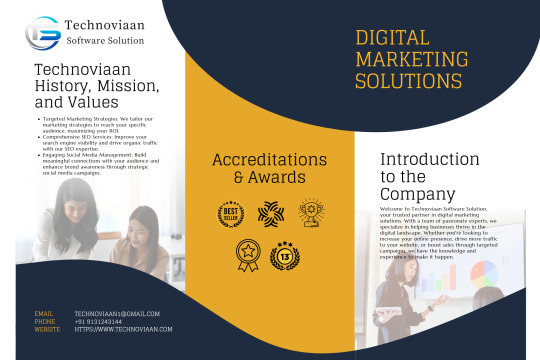Don't wanna be here? Send us removal request.
Text
Transform your cricket fantasy into reality with your own app.
Elevate the gaming experience with our cutting-edge fantasy cricket app development solutions. Transform your ideas into reality with our expert team.

0 notes
Text

Leveraging social media platforms can significantly enhance your SEO by driving traffic, generating quality backlinks, and increasing overall visibility.
0 notes
Text
The most effective strategies for improving SEO performance in 2024?
The landscape of SEO strategies may have evolved further by 2024, but I can outline some key strategies that have historically been effective and are likely to continue being important in enhancing SEO performance:
High-Quality Content Creation: Continue to focus on creating valuable, relevant, and engaging content for your audience. Content should be well-researched, and informative, and answer user queries effectively. Utilize various formats such as videos, infographics, podcasts, etc. to cater to different preferences.
User Experience (UX) Optimization: Prioritize improving user experience across all devices. Ensure your website loads quickly, is mobile-friendly, and easy to navigate. Optimize for Core Web Vitals metrics such as Largest Contentful Paint (LCP), First Input Delay (FID), and Cumulative Layout Shift (CLS).
Semantic Search and Intent Optimization: Understand user intent behind search queries and optimize your content accordingly. Focus on providing comprehensive answers and solutions to users’ questions. Utilize structured data markup to enhance search engine understanding of your content.
Voice Search Optimization: With the increasing prevalence of voice search, optimize your content for natural language queries and long-tail keywords. Consider the conversational tone and phrasing in your content to align with how people speak.
E-A-T (Expertise, Authoritativeness, Trustworthiness): Establish your expertise, authority, and trustworthiness in your niche. Showcase credentials, accreditations, and testimonials where relevant. Ensure accuracy and transparency in your content.
Technical SEO: Regularly audit and optimize your website’s technical elements such as crawlability, indexability, site structure, and URL structure. Address issues such as broken links, duplicate content, and XML sitemap errors. Implement HTTPS encryption and ensure your site is secure.
Local SEO: If applicable, optimize your website for local search by claiming your Google My Business listing, optimizing NAP (Name, Address, Phone Number) consistency, and obtaining local citations. Encourage positive reviews from satisfied customers.
Mobile-First Indexing: Given the importance of mobile devices in internet usage, prioritize mobile optimization. Ensure responsive design, fast loading times, and a seamless mobile browsing experience.
Social Media Integration: While not a direct ranking factor, active engagement on social media platforms can indirectly impact SEO by driving traffic, brand awareness, and backlinks. Share your content across relevant social channels and encourage social sharing.
Link Building and Digital PR: Focus on earning high-quality backlinks from authoritative and relevant websites. Invest in outreach efforts, guest blogging, and content partnerships to attract natural backlinks. Additionally, leverage digital PR strategies to gain media coverage and mentions.
Remember that SEO is an ongoing process, and staying updated with the latest trends, algorithm changes, and best practices is crucial for maintaining and improving your website’s search visibility over time. Additionally, always prioritize providing value to your audience, as user satisfaction is ultimately what search engines aim to prioritize.
0 notes
Text
The landscape of SEO strategies may have evolved further by 2024, but I can outline some key strategies that have historically been effective and are likely to continue being important in enhancing SEO performance:
High-Quality Content Creation: Continue to focus on creating valuable, relevant, and engaging content for your audience. Content should be well-researched, and informative, and answer user queries effectively. Utilize various formats such as videos, infographics, podcasts, etc. to cater to different preferences.
User Experience (UX) Optimization: Prioritize improving user experience across all devices. Ensure your website loads quickly, is mobile-friendly, and easy to navigate. Optimize for Core Web Vitals metrics such as Largest Contentful Paint (LCP), First Input Delay (FID), and Cumulative Layout Shift (CLS).
Semantic Search and Intent Optimization: Understand user intent behind search queries and optimize your content accordingly. Focus on providing comprehensive answers and solutions to users’ questions. Utilize structured data markup to enhance search engine understanding of your content.
Voice Search Optimization: With the increasing prevalence of voice search, optimize your content for natural language queries and long-tail keywords. Consider the conversational tone and phrasing in your content to align with how people speak.
E-A-T (Expertise, Authoritativeness, Trustworthiness): Establish your expertise, authority, and trustworthiness in your niche. Showcase credentials, accreditations, and testimonials where relevant. Ensure accuracy and transparency in your content.
Technical SEO: Regularly audit and optimize your website’s technical elements such as crawlability, indexability, site structure, and URL structure. Address issues such as broken links, duplicate content, and XML sitemap errors. Implement HTTPS encryption and ensure your site is secure.
Local SEO: If applicable, optimize your website for local search by claiming your Google My Business listing, optimizing NAP (Name, Address, Phone Number) consistency, and obtaining local citations. Encourage positive reviews from satisfied customers.
Mobile-First Indexing: Given the importance of mobile devices in internet usage, prioritize mobile optimization. Ensure responsive design, fast loading times, and a seamless mobile browsing experience.
Social Media Integration: While not a direct ranking factor, active engagement on social media platforms can indirectly impact SEO by driving traffic, brand awareness, and backlinks. Share your content across relevant social channels and encourage social sharing.
Link Building and Digital PR: Focus on earning high-quality backlinks from authoritative and relevant websites. Invest in outreach efforts, guest blogging, and content partnerships to attract natural backlinks. Additionally, leverage digital PR strategies to gain media coverage and mentions.
Remember that SEO is an ongoing process, and staying updated with the latest trends, algorithm changes, and best practices is crucial for maintaining and improving your website’s search visibility over time. Additionally, always prioritize providing value to your audience, as user satisfaction is ultimately what search engines aim to prioritize.
#seo#seo services#web development#digital marketing#search engine optimization#online marketing#google ads
1 note
·
View note
Text










Technoviaan promote your band through the digital marketing service
#webdesign#web development#digital marketing#web developing company#socialmediamarketing#website#webdevelopment
1 note
·
View note
Text
What is the best way to build your own website?
The "best" way to build your website depends entirely on your needs, skills, and preferences. Here are some options to consider:
Website builders: Platforms like Wix, Squarespace, and Weebly offer drag-and-drop interfaces, pre-built templates, and easy hosting, making them perfect for those with no coding experience. However, customization options might be limited, and fees can add up. Content management systems (CMS): WordPress is a popular CMS known for its user-friendly interface, vast plugin ecosystem, and flexibility. While slightly more complex than website builders, it still offers a decent learning curve and plenty of templates to get started. For more experienced users:
Static site generators (SSGs): Tools like Gatsby and Jekyll help you build websites with HTML, CSS, and JavaScript, offering more control and performance than traditional CMS. However, they require some coding knowledge and aren't ideal for dynamic content. Custom frameworks: Django, Ruby on Rails, and Laravel are powerful frameworks for building full-fledged web applications with complete customization. But be prepared for a steeper learning curve and significant development effort. Other factors to consider:
Your budget: Website builders and CMS generally have monthly or annual fees, while SSGs and custom frameworks are typically free but require hosting costs. Your timeline: Website builders offer the fastest way to get online, while custom frameworks might take months to develop. Your technical skills: Choose a platform that matches your comfort level with coding and technical concepts. Your website's complexity: Simple informational websites can be built with any option, while complex e-commerce platforms might require custom development. Here are some additional tips:
1. Research and compare different options before making a decision. 2. Start with a basic website and add features later as needed. 3. Focus on making your website mobile-friendly. 4. Use high-quality images and videos

Optimize your website for search engines (SEO). Test your website thoroughly before launching it. Ultimately, the best way to build your website is the one that works best for you. Don't be afraid to experiment and try different options until you find the perfect fit.
About the Author Jitendra Singh, the founder of Technoviaan is an excellent IT professional. Connect: +91 9131243144 E-mail: [email protected]
0 notes
Text
Technoviaan-Software Solution
Boost your business with Technovian Software Solutions in Indore – Top-notch custom software, cutting-edge technology, and unparalleled support!
1 note
·
View note

